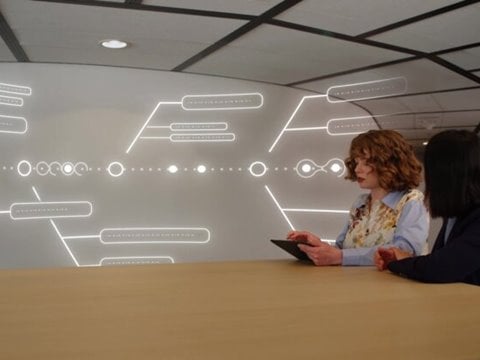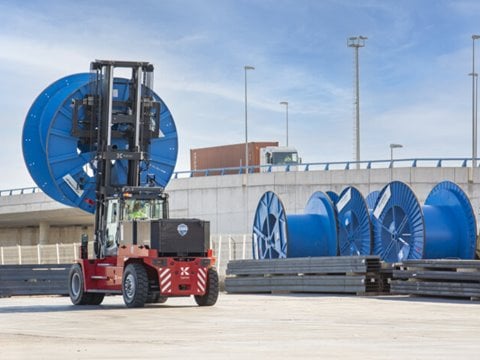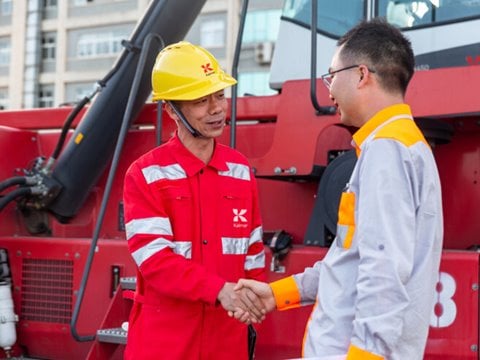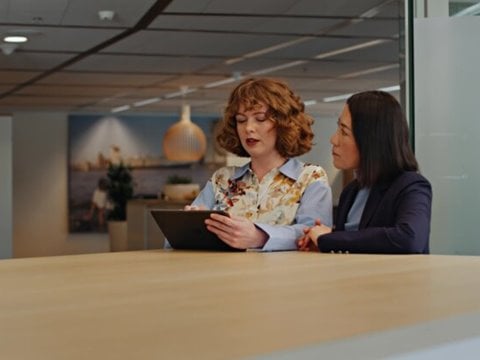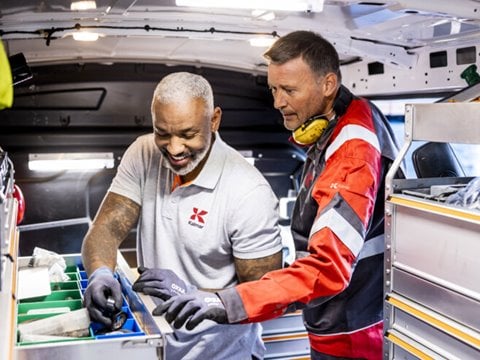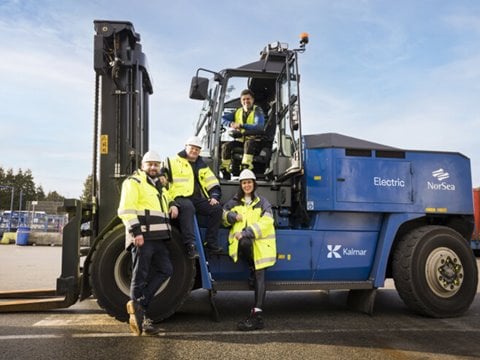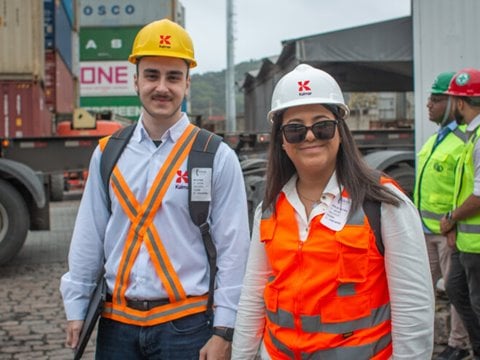
Kalmar One redefines terminal automation
A new era is dawning in terminal automation, one characterised by openness and standardisation – both important factors in helping terminals get maximum value from their investments. Kalmar One is the container handling industry’s first truly open automation system, designed as a modular solution that can be adapted according to the customer’s operational model and built on the rock-solid foundations of Kalmar’s automation expertise.
Shipping companies, vessels and terminal hubs are all becoming larger, while trade patterns are experiencing greater fluctuations. All of these factors are driving the demand for automation in container terminals.
“Automation in one form or another is the future for terminals of all types when it comes to continuously improving the efficiency, safety and sustainability of their operations, says Tomi Tuulkari, Director, Product Management at Kalmar.
Before now, automation projects have been heavily customised bespoke solutions that are complex and time-consuming to build, deploy and maintain. Kalmar has been a leading voice in the discussion about the future direction of terminal automation, and the clear message is that suppliers cannot do this alone – it has to be a joint effort.
We want to speed up deployment and shorten start-up lead times with a modular, open automation system.
“The problem with automation projects has been that they try to reinvent the wheel almost every time. We want to speed up deployment and shorten start-up lead times as well as simplify maintenance by introducing a modular, open automation system that will enable the industry to move towards standardisation. This will lead to a lower total cost of ownership,” he says.
Making the big picture clear for customers
Kalmar One will harmonise functionalities regardless of the level of automation, equipment type or operational model the customer wants to implement. It provides a set of common building blocks upon which the customer application is built.
“Currently, when customers are right at the start of their automation journey, it can be hard for them to see the wood for the trees – what’s already available that meets their needs,” Tuulkari highlights. “With Kalmar One, customers can pick and choose the products they want to deploy from our seven product families – each of which focuses on a set of important aspects of terminal automation. The same features and products are available to customers regardless of which types of machines they have or how advanced they want to be in terms of automating their operations,” he explains.
In this way Kalmar One brings clarity to our automation offering and makes it easier for Kalmar customers to select exactly the right combination of automation system products for their individual applications.
Scalable, step-wise automation for terminals of all sizes
Kalmar One is built for scalable operations – both in terms of the level of automation and the amount of equipment or number of automation products in use at the terminal.
“We provide the roadmap for step-wise automation and are here to support over the lifetime of the terminal. This approach enables terminals to establish a solid foundation for automation by progressing at a pace that suits their business,” Tuulkari says.
Customers can add new layers of intelligence to their terminal, starting from process automation features and moving towards remote-controlled, semi-automated or fully automated moves as and when it suits them.
Customers can start from process automation features and move towards full automation when it suits them.
“With this approach we can support everything from terminals with one piece of manual equipment right up to mega-sized terminals with large and complex automation infrastructure,” Tuulkari states.
Kalmar One is a fully supported platform for life, meaning that customers can trust that the system will be developed and supported during the whole lifecycle of their operations. “We have almost 200 Kalmar experts continuously developing the automation system. This means that we provide on-site support and consultancy services to help customers make the most of their solution,” he continues.
Empowering people and building a knowledge base
Kalmar One empowers customers by putting them in the driving seat when it comes to automating their operations. The standardised application architecture means customers know exactly what they are buying, and the system will also be easier to deploy.
“Because customers know what they’re getting and we understand what we’re providing, projects will become easier, faster and more cost-efficient. What’s more, our applications will be more reliable and easier to deploy because much of the proven codebase is used over and over again ,” Tuulkari explains.
With Kalmar One, the same automation system products are used to provide the same functionalities and processes to different applications. This means that Kalmar One products can be deployed in different terminals with identical user interactions, and technicians around the world will know how to use the system.
The same products are used to provide the same functionalities and processes to different applications.
“This repeatability will help customers build their own knowledge base and pool of empowered experts who are able to use their expertise for troubleshooting and effortless deployment from one site to another,” Tuulkari continues.
At the heart of the automation system are the Kalmar Key application interfaces. These application and platform keys make it possible for customers or their partners to build extensions to their Kalmar applications and even introduce new automation applications. Because of Kalmar Key, customers have complete freedom to choose who they work with, helping them adopt an agile approach to further develop the capabilities of their equipment and software.
Redefining terminal automation
The move towards standardisation and openness is not one that will happen without all stakeholders working together. This needs to be a real team effort, and we at Kalmar are happy to be a leading light in shaping the future direction of terminal automation.
“We want to redefine automation with Kalmar One. As the industry’s first truly open and modular automation system it will enable customers to reap the rewards of Kalmar’s long expertise in automation and take ownership of their own automation journey,” Tuulkari concludes.
Join the discussion and be part of our open ecosystem in our Kalmar Key Partner Forum – a ‘one-stop-shop’ where developers, customers and partners can come together to discuss topics relating to the overall development of the Kalmar One offering.
Related articles
Further reading
External resources
Subscribe and receive updates in your email
Subscribe